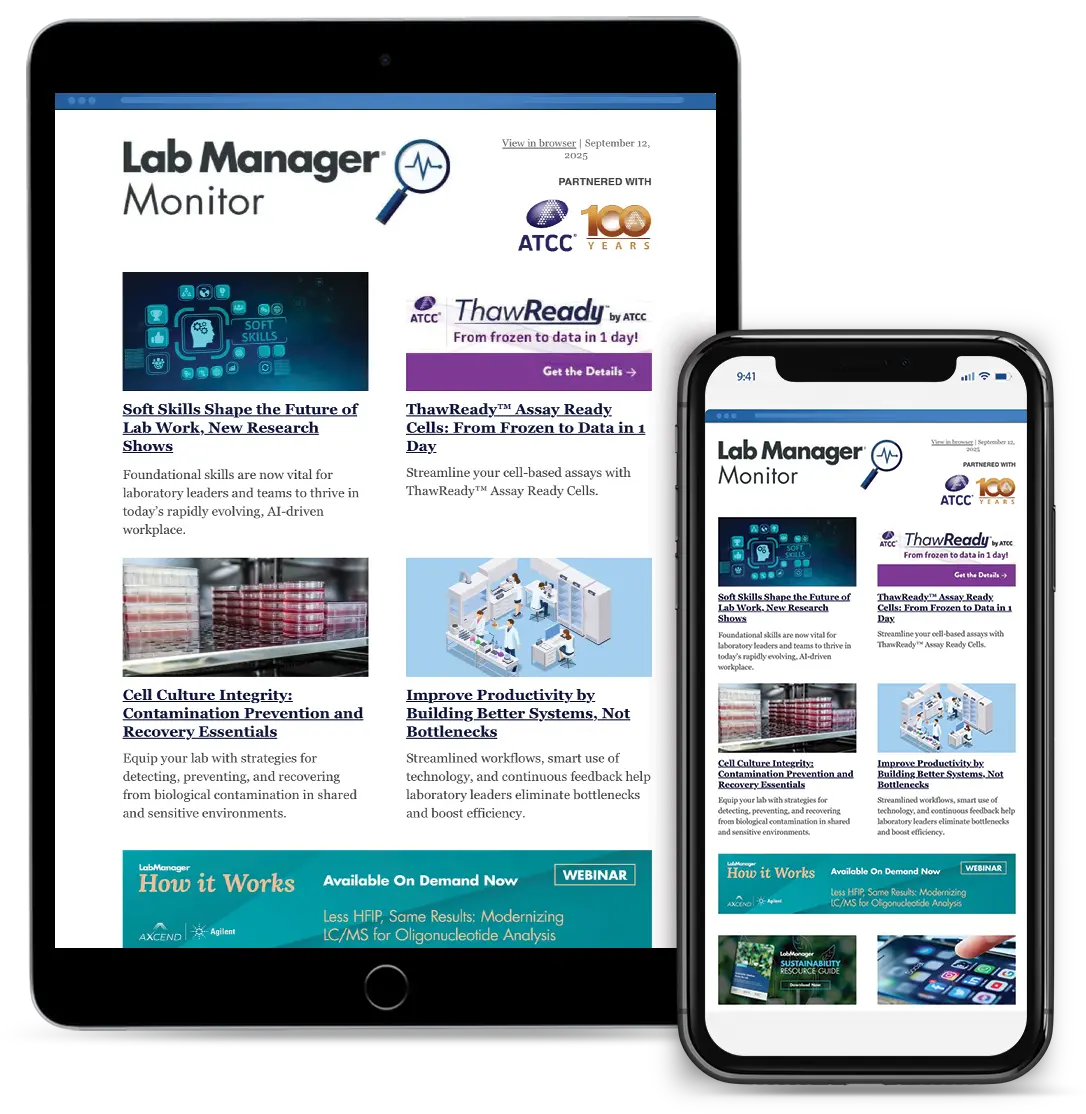Being a lab manager is a complex role with significant responsibility. You need to be well versed in the science of the lab, happy to enable the staff to succeed, and able to make the hard decisions. Most lab managers earn the role through their work at the bench in the lab, so the science is the easy part of the role. However, most lab managers begin with little experience in management or people leadership. If you had good role models as managers during your bench career in the lab, you are ahead of many of your peers. To help you build skills, knowledge, and confidence in your ability to deliver, we have developed the lab management certificate program in the Lab Manager Academy.
Lab management certification
The lab management certificate program was designed to help you improve your ability to deliver on a wide variety of topics important to the role of lab manager. The certification includes 20 courses that are all online, presented as a full e-learning experience complete with lecture, informative slides, interactive elements, activities, and a quiz to demonstrate your mastery of the information provided. You can proceed through the courses in any order and at the pace that suits your learning style and schedule. Built from my twenty years of experience as a lab manager, we provide you with the lessons that I learned the hard way along my lab management journey.
Laboratory management
If you are just starting out as a lab manager or have the desire to become a lab manager in the future, the first thing to think about is your people leadership skills. Everything of value that the lab delivers is done by and through the people. Learning better ways to lead people and help them improve their performance is a key to successful lab management.
An added challenge that many new managers face is being promoted from within the lab, which changes the relationships in the lab from peer to manager. The Leadership Basics course will provide a foundation to develop the leadership skills needed for this transition. The other courses in the How to Manage Lab Staff stream of the lab management certification includes courses on determining roles and objectives, conducting performance reviews, recruiting and onboarding new staff, and succession planning. Improving your skills around people management will help you make the transition to the new role and help you provide the feedback and expectations that will enable your staff to be successful.
After you’ve gained some experience managing a lab, it’s time to ensure the lab is operating smoothly and effectively. The courses in the How to Improve Lab Operations stream will demonstrate how you can assess and implement improvements in your lab. This stream includes topics like quality assurance, lab safety, asset management, metrics and productivity, and effectively advocating for the lab. Improving in these skills will help you improve the lab’s basic systems to enable greater productivity and delivery for your key customers or stakeholders.
Improving leadership skills
For more experienced lab managers, the lab management certificate includes training on more advanced leadership and management topics. The How to Be a Better Leader stream includes courses on employee engagement, personality types, creating an environment of success, positive communication, and conflict resolution. These courses will help you build a stronger community in the lab, which enables the staff to thrive and helps you retain your key contributors.
Improving management skills
In the How to Improve Lab Management stream, you will learn more advanced lab management skills, such as change management, data-driven decisions, difficult decisions, negotiating win/win, and networking and influence. Improving these skills will provide you the management foundation to make difficult decisions faster and with greater confidence. Those decisions will help the staff and the lab make progress with difficult situations and problems.
Each stream within the lab management certificate program will help with skill development and provide the confidence required to perform the role of lab manager. The training will make it easier for you to engage in sharing with lab manager peers, which is a great way to learn different approaches to the issues you face in your lab. Interacting with internal and external peers helps share perspective and ideas around the challenges of the role.
If you’d like to learn more about the lab management certificate and the Lab Manager Academy, please visit labmanageracademy.com.






